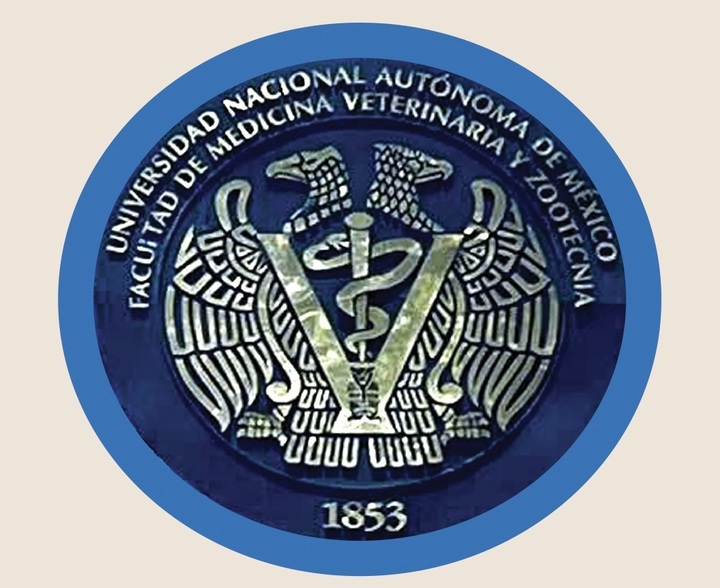UNAM's hard-fought effort to achieve recognition voluntarily reversed after 14 years
 Listen to this story.
Listen to this story.
UNAM_vetschool_seal

Founded in 1853, the Universidad Nacional Autónoma de México is the oldest public veterinary school in North America.
The veterinary school at one of Mexico's oldest and most respected public universities has withdrawn from United States accreditation, sparking the ire of some students and alumni.
Universidad Nacional Autónoma de México (UNAM) is home to the only veterinary school in Mexico ever accredited by the American Veterinary Medical Association's Council on Education. The council approved UNAM's request to withdraw in March, just weeks before the accreditor was scheduled to make a comprehensive site visit to the school's Mexico City campus as part of the regular accreditation renewal process.
Notice of the council's decision was published on the AVMA's website in mid-April. The accreditation expires at the end of the year.
In response to VIN News Service questions about the decision, Dr. Carlos Guillermo Gutiérrez Aguilar, director of the veterinary school since February 2024, tied the accreditation withdrawal to the scheduled site visit. "While we had fully prepared for the visit and completed all necessary steps, we made the voluntary decision to withdraw and cancel the site visit," Gutiérrez wrote in an email today. "Unfortunately, we could not ensure the appropriate environment for it to proceed as planned."
He said he could not provide additional details.
The AVMA accreditation council does not comment to the media about individual colleges.
Two students told VIN News via email that they were opposed to the decision and participated with other students in meetings last week to try to persuade Gutiérrez to change his mind. One student described the school's action as "unilateral" and "arbitrary."
They worried the withdrawal would negatively impact students, recent graduates and faculty, although they didn't elaborate on how. The students did not respond to follow-up questions and did not want to be identified publicly for fear of reprisals by the school.
A faculty member, who also asked not to be identified for similar reasons, said the withdrawal of accreditation was a complete surprise. They said the veterinary school had benefited from the accreditation process, which "pushed it forward," making it the best in the country.
In his email to VIN News, Gutiérrez claimed the withdrawal is temporary. "We are diligently working to make the best decisions for our students and the University, with the aim of obtaining accreditation as soon as possible," he wrote.
On April 25, after at least one meeting with students, the veterinary school posted on its Facebook page that it would formally restart the accreditation process with AVMA in January, "siempre y cuando se cuente con las condiciones institucionales que lo permitan," which roughly translates to "as long as conditions allow." Several commenters on the post expressed skepticism that UNAM would actually do so.
Impact of accreditation
Programs need to be accredited or on track for accreditation for their U.S. students to access federal financial aid, including loans. However, few U.S. students attend UNAM, according to an April 23 AVMA news story. The six-year program is geared to Mexican citizens who matriculate after graduating from high school.
U.S. accreditation provides graduates with a relatively straight path to licensure in Canada or the U.S. by enabling them to directly take the North American Veterinary Licensing Examination (NAVLE), which is given in English and French.
In contrast, graduates of unaccredited foreign programs have two different routes to licensure in North America, each with additional steps to complete before taking the NAVLE.
One administered by the AVMA has been plagued by complaints from foreign veterinarians, who told VIN News last year that the assessment process was backlogged, leaving them in limbo.
It appears, however, that few UNAM graduates have leveraged their school's status to seek jobs in the U.S. or Canada, judging from the number who take the NAVLE, according to a VIN News story in 2022. The International Council for Veterinary Assessment, which oversees the test, does not divulge how many graduates of a given institution take the NAVLE, but UNAM has proxy data.
Those wishing to take the exam need a letter from the school confirming their attendance and the year they graduated. According to the school, from 2015 through May 2022, it had given out 125 such letters.
Considering 500 to 600 or more students graduate during most years, that's roughly only 3%.
UNAM remains accredited by Mexico's National Council on Education for Veterinary Medicine and Zootechnics, according to the AVMA.
'A serious mistake'
UNAM's change of direction comes 14 years after the school earned full accreditation following a contentious, nearly 15-year drive to qualify. The efforts faced headwinds especially during and just after the Great Recession. Some veterinarians in the U.S. expressed worries that accrediting UNAM would fuel job competition from immigrating professionals and drive down wages.
In a look back more than a decade later, VIN News found that the fears were unrealized. In part due to the language barrier, only a small number of UNAM alumni chose to leave Mexico to practice north of the border.
Dr. Benjamin Macuil-Rojas graduated in 2011, the year UNAM achieved full accreditation. For several years, he worked at clinics in Mexico City and León, Guanajuato, before passing the NAVLE and moving to practice in the U.S. in 2018. Today, he is the medical leader at a hospital in the Portland, Oregon, area.
He has characterized UNAM's withdrawal from accreditation as a "serious mistake" with negative consequences for current and future generations of veterinarians.
In a letter submitted to a student committee organizing meetings with the dean, a translation of which was provided to VIN News, Macuil-Rojas said withdrawing accreditation would limit UNAM graduates' access to internships and international placements, which would "hinder professional growth and the international representation of our institution."
Macuil-Rojas told VIN News that he has heard from UNAM students and colleagues in Mexico that the move was spurred by a desire to keep veterinarians from moving to the U.S., a notion he addressed in his letter.
"The brain drain is not fought by closing doors but by creating opportunities, strengthening the profession, and also supporting the colleagues who work day in and day out [at the school]," he wrote. "Accreditation not only brings recognition but also drives the veterinary profession at a time when, unfortunately, in Mexico, we still face challenges of respect and professional recognition, even leading to tragic cases resulting from the stigmatization of the profession."